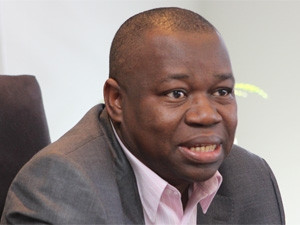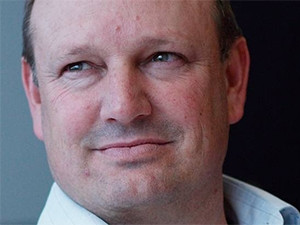
The war between the South African Roads Agency (Sanral) and its nemesis Organisation Undoing Tax Abuse (Outa) has turned ugly, with the two organisations trading blows over the contentious issue of e-tolls.
Yesterday, the roads agency issued a statement titled "Outa misleads the public", slamming Outa over a report it recently published. The report points to a number of alleged irregularities in the construction and management of the Gauteng Freeway Improvement Project (GFIP).
Sanral says, through its legal representatives, it requested Outa to substantiate its claims. Outa was also asked to provide all information, including detailed engineering reports, research and financial calculations on which allegations contained in a recently published report are based. Outa was requested to respond by 6 April 2016 but failed to do so, Sanral notes.
"We have not yet received the information requested," says Vusi Mona, spokesperson for Sanral.
Direct engagement
Outa has issued a counter-statement over the issue, saying it stands by its "road overcharges report".
The organisation says it does not deny it received questions from Sanral's attorneys about the report. "We responded to Sanral's attorneys (Werksmans) and requested the engagement takes place directly between Outa and Sanral, without the unnecessary costs of an expensive law firm - at the expense of the taxpayer - unnecessarily serving as a go-between, as Outa has no problem in engaging directly with Sanral.
"We then also sent our letter directly to Mr Nazir Alli [Sanral CEO] last week, informing him of the same, but have since been instructed that we must only engage through their lawyers. Werksmans has also refused to answer any of our questions. This incessant need to converse with civil society entities via law firms, for a response to straight-forward questions, is indicative of an arrogant belief that they have carte blanche to waste taxpayers' funds at will."
Sanral also charges that Outa suggested the roads agency is corrupt, incompetent and has colluded with the construction industry.

"The collusive practices by the construction industry are being dealt with within the relevant structures in government including ourselves. These perceptions created by Outa cannot be left unchallenged by Sanral because they are misleading the public, the media and current and potential investors," Mona says.
"In terms of Outa's own mandate, it has a responsibility towards the public to provide the factual basis for its allegations. It has persistently failed to do so. It is self-servingly misrepresenting the position in support of its stance that the public should ignore civil summonses," he adds.
Sanral points out it has sent Outa a list of hundreds of questions and requests for clarifications based on the organisation's 29-page "position paper".
Early dismissal
Alex van Niekerk, project manager for the GFIP, says Outa's document can be dismissed as early as its second page where it is recorded the Gauteng Freeway network consists "of approximately 185km".
According to Van Niekerk, the actual length is 201km, which undermines the veracity of all of the other figures quoted in the document which rely on the length of the Gauteng Freeway network.

In the first case study referred to in the report, Outa confuses the unit of measurement, he points out, adding Outa incorrectly extracts construction costs in Europe and bases its calculations on these values in "millions" of euros instead of the "billions" stated in this study.
"This constitutes an almost 100 000% error. Was this done deliberately to create perceptions or just plainly to misinform the public? Based on Outa's own calculation, but with the correct values inserted (billions not millions), the GFIP freeways are in fact 99.7% cheaper than the comparable European costs," he says.
In response, Outa says Sanral has tried to vilify its report based on information which it says is incorrect.
"They start out by asking where we obtained the number of '185km' for the GFIP project from, and try to discredit our entire report, based on a result of their own numbers. We have since accessed presentations given by Sanral's own management, which references the GFIP, and the 15 work packages after the tenders were announced, as being for 185km.
"In recent years, we have noticed Sanral has mentioned a very slight increase in the length of GFIP - first to 195km then later to 201km - but these numbers were quoted after the project was completed. So, we stick to our number, as they themselves have referenced on numerous occasions, and to which the costs have been attributed to. Their change in this scope by an extra 16km needs to be spelt out by them, not us."
Erroneous assertion
Outa also notes that in another part of Sanral's attempt to discredit the paper, the roads agency says Outa got the figures wrong by 100 000%.
"Not so Sanral, you have got your facts wrong. Honestly, does Sanral seriously think we would misquote a cost in error to the tune of 100 000%," says Wayne Duvenage, Outa chairperson.
"Sanral should know better than to try and make an outrageous claim of this nature, before looking a little deeper into their grossly erroneous assertion."
For the record, Duvenage adds, Outa was not wrong in its reference to EUR0.52 million. "While the Netherlands Delft report does make reference to EUR0.52 'billion' on page 33, which Sanral has pointed out in an attempt to discredit a part of the report, it turns out that Outa was correct to amend what is clearly a typo on the Delft Report."
Share